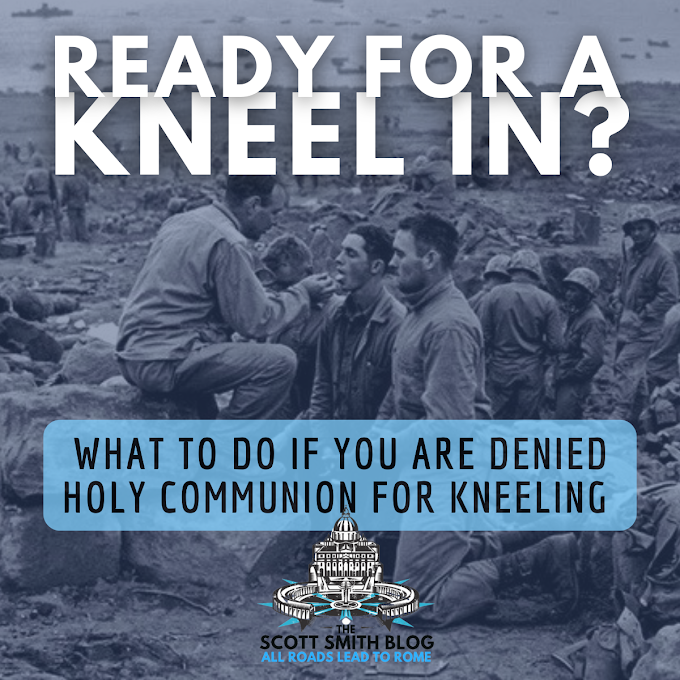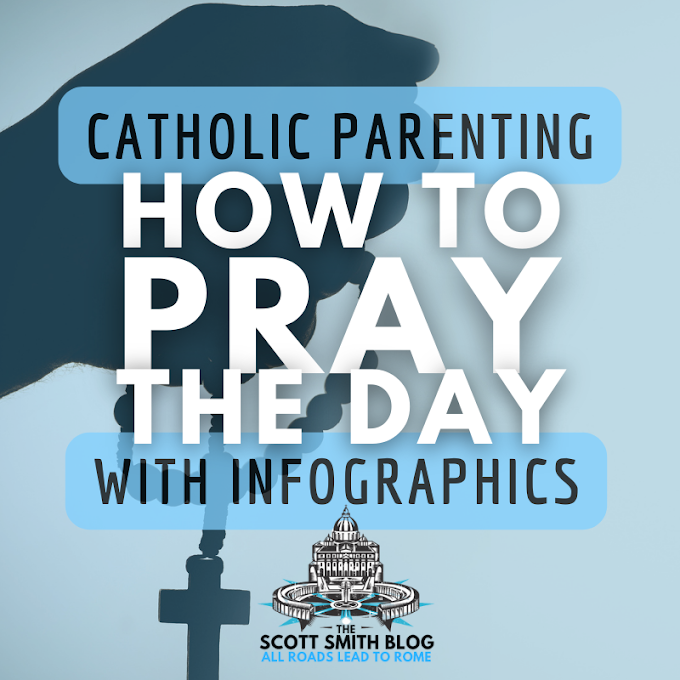Do you know where the Rosary came from? The Blessed Mother gave it to us, of course, but when and why? The answer is very important. It gives us a way to fight the evils of our world, or, as Saint Pope John Paul II described it, the "Culture of Death".
The Rosary, or the “Crown of Roses” as it has been called, is largely attributed to St. Dominic, the founder of the Dominican Order. St. Dominic was battling against the Albigensian heresy in the south of France, a region called Languedoc. The Albigensian heresy was a form of dualism in which the material world was evil, while the spiritual world was good. Further, the body was evil, while the soul was good. They believed that adultery, fornication, and even suicide (as a means of freeing the soul from the body) were all praiseworthy.
In other words, the Rosary was originally given to combat a culture exactly like our own, a "Culture of Death" and dualism.
St. Dominic preached the truths of the Faith, and was jeered, insulted, and pelted with stones as he traveled. We have the following account from P. Cornelius de Snecka, a disciple of the French Dominican Alan de la Roche:
Armed now with the Rosary, St. Dominic went into the villages of the heretics and preached the Mysteries of salvation, as the Virgin had instructed. He soon proved an unstoppable evangelizer and the whole south of France was purged of heresy. The late Dominican Reginald Garrigou-Lagrange, a teacher of Pope Saint John Paul II when he was a student at the Angelicum in Rome, stated: “Our Blessed Lady made known to St. Dominic a kind of preaching till then unknown; which she said would be one of the most powerful weapons against future errors and in future difficulties.”
Pope Pius V established the Joyful, Sorrowful, and Glorious Mysteries. Pope Saint John Paul the Great later established the Luminous Mysteries in 2002. Each of these “illuminating” mysteries, echo the words of the Blessed Mother at the Wedding at Cana: “Do whatever He tells you.”
Did you enjoy learning about the Rosary? This post is an excerpt from my book, The Catholic ManBook, available for purchase here.
Stay tuned for an upcoming blog post on the Rosary & the Battle of Lepanto!
The rosary is the book of the blind, where souls see and there enact the greatest drama of love the world has ever known; it is the book for the simple, which initiates them into mysteries and knowledge more satisfying than the education of other men; it is the book for the aged, whose eyes close upon the shadow of this world, and open on the substance of the next. The power of the rosary is beyond description.
-Venerable Fulton J. Sheen
The Rosary, or the “Crown of Roses” as it has been called, is largely attributed to St. Dominic, the founder of the Dominican Order. St. Dominic was battling against the Albigensian heresy in the south of France, a region called Languedoc. The Albigensian heresy was a form of dualism in which the material world was evil, while the spiritual world was good. Further, the body was evil, while the soul was good. They believed that adultery, fornication, and even suicide (as a means of freeing the soul from the body) were all praiseworthy.
In other words, the Rosary was originally given to combat a culture exactly like our own, a "Culture of Death" and dualism.
St. Dominic preached the truths of the Faith, and was jeered, insulted, and pelted with stones as he traveled. We have the following account from P. Cornelius de Snecka, a disciple of the French Dominican Alan de la Roche:
We read that at the time when he was preaching to the Albigenses, St. Dominic at first obtained but scanty success: and that one day, complaining of this in pious prayer to our Blessed Lady, she deigned to reply to him, saying: ‘Wonder not that you have obtained so little fruit by your labors, you have spent them on barren soil, not yet watered with the dew of Divine grace. When God willed to renew the face of the earth, He began by sending down on it the fertilizing rain of the Angelic Salutation. Therefore preach my Psalter composed of 150 Angelic Salutations and 15 Our Fathers, and you will obtain an abundant harvest.’The Dominican Order holds that the Blessed Mother revealed the Rosary to St. Dominic in the church of Prouille in 1208. This was affirmed by Pope Leo XIII and subsequent popes.
Armed now with the Rosary, St. Dominic went into the villages of the heretics and preached the Mysteries of salvation, as the Virgin had instructed. He soon proved an unstoppable evangelizer and the whole south of France was purged of heresy. The late Dominican Reginald Garrigou-Lagrange, a teacher of Pope Saint John Paul II when he was a student at the Angelicum in Rome, stated: “Our Blessed Lady made known to St. Dominic a kind of preaching till then unknown; which she said would be one of the most powerful weapons against future errors and in future difficulties.”
Pope Pius V established the Joyful, Sorrowful, and Glorious Mysteries. Pope Saint John Paul the Great later established the Luminous Mysteries in 2002. Each of these “illuminating” mysteries, echo the words of the Blessed Mother at the Wedding at Cana: “Do whatever He tells you.”
Did you enjoy learning about the Rosary? This post is an excerpt from my book, The Catholic ManBook, available for purchase here.
Bonus: Sister Lucia of Fatima on the Rosary
Here are some quotes from Sister Lucia of Fatima on the power of the Rosary:
- “When lovers are together, they spend hours and hours repeating the same thing: ‘I love you!’ What is missing in the people who think the rosary monotonous is Love; and everything that is not done for love is worthless.”
- “The Most Holy Virgin in these last times in which we live has given a new efficacy to the recitation of the Rosary to such an extent that there is no problem, no matter how difficult it is, whether temporal or above all spiritual, in the personal life of each one of us, of our families… that cannot be solved by the Rosary. There is no problem, I tell you, no matter how difficult it is, that we cannot resolve by the prayer of the Holy Rosary.”
- “Since we all need to pray, God asks of us, as a kind of daily installment, a prayer which is within our reach: the Rosary, which can be recited either in common or in private, either in church in the presence of the Blessed Sacrament or at home, either with the rest of the family or alone, either when traveling or while walking quietly in the fields. A mother of a family can say the Rosary while she rocks her baby’s cradle or does the housework. Our day has 24 hours in it. It is not asking a great deal to set aside a quarter of an hour for the spiritual life, for our intimate and familiar converse with God.”













0 Comments